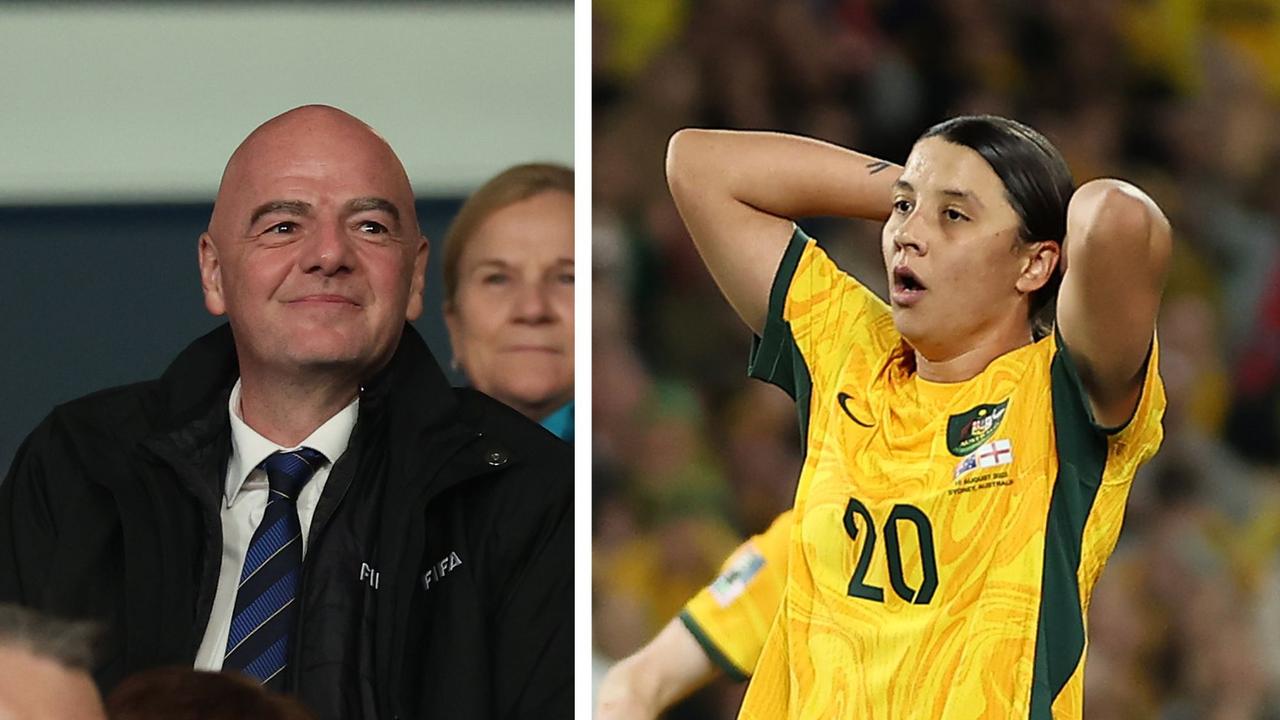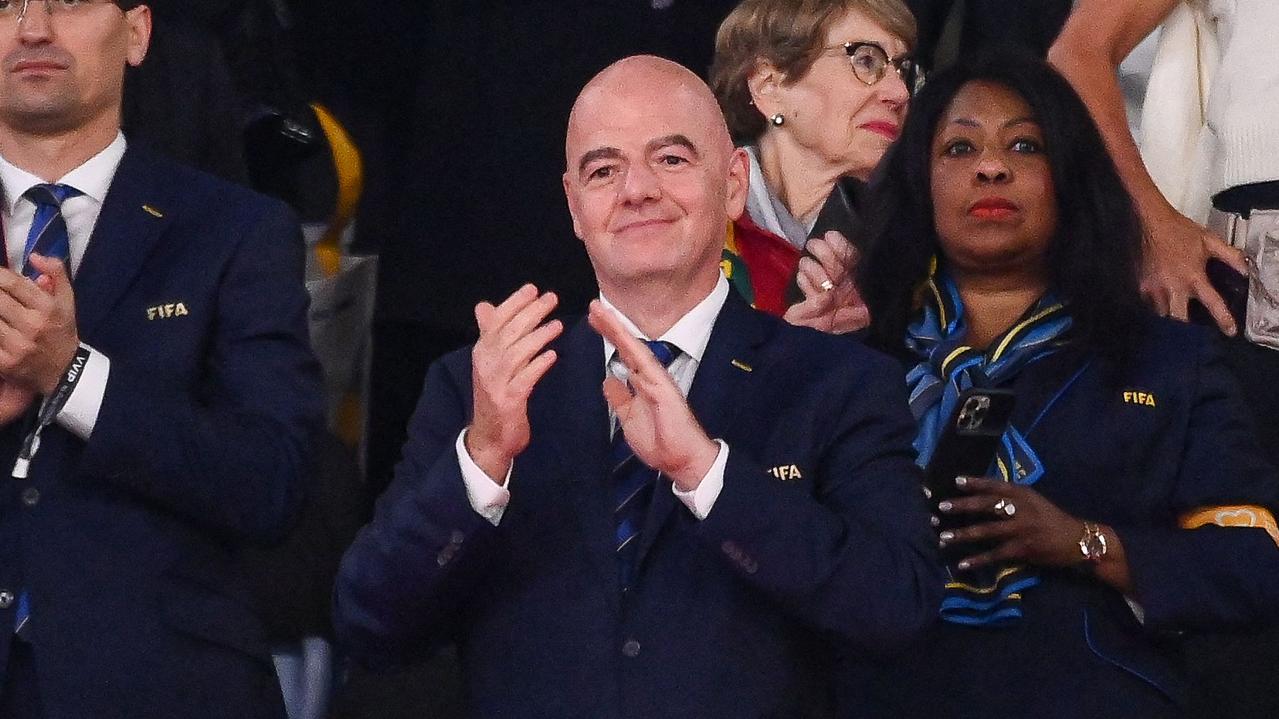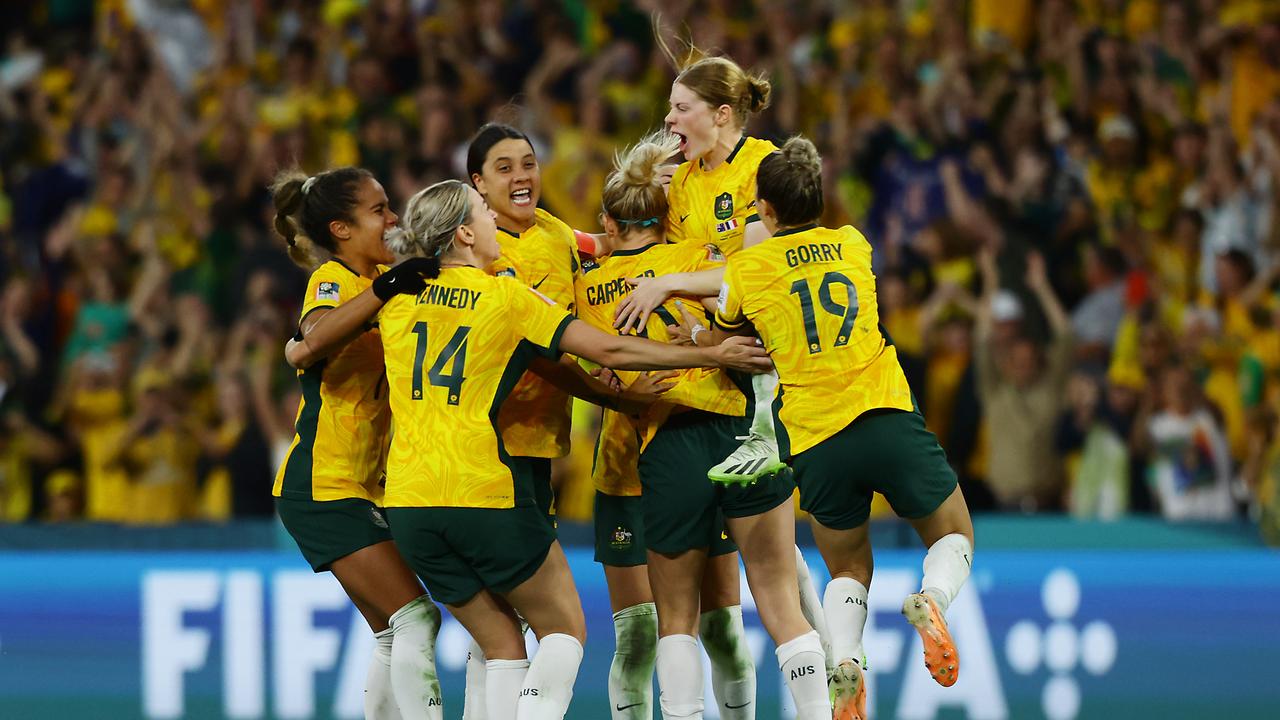FIFA World Cup generated close to $900 million in revenue
The staggering amount of revenue generated by the Women’s World Cup has been revealed but it may not impact prize money.

FIFA president Gianni Infantino has revealed the “best and greatest and biggest Women‘s World Cup ever” has generated close to $900 million in revenue.
But it was only enough for the tournament to “break even” and didn’t paint a picture of being able to increase prize money for future tournaments towards levels enjoyed by the men’s game.
Speaking at the FIFA Women’s Football Convention in Sydney on Friday, Infantino revealed the governing body was prepared to subsidise the tournament which was staged across Australia and New Zealand.
But surging crowds with more than two million tickets sold and unprecedented interest as the Matildas in particular garnered the attention of the whole of Australia helped push FIFA’s earnings to just over $890m ($US570m).
Infantino said it was the second-highest income generated from any global sporting event, behind only last year’s men’s World Cup in Qatar.
Prize money however remains markedly different, with a prize pool of $170m for women and $680m for men.
The FIFA boss conceded there was room to still do “much better” for the women’s game but said the revenue showed their strategy, which included taking the tournament out of the northern hemisphere despite time zone issue for broadcasters, worked.
“Some voices were raised, where it cost too much, we don‘t make enough revenues, we will have to subsidise,” he said.
“And our opinion was, ‘Well, if we have to subsidise, we will subsidise’, because we have to do that.
“But actually, this World Cup generated over $US570m in revenues, and so we broke even.

“We didn’t lose any money and we generated the second-highest income of any sport, besides of course the men’s World Cup, at a global stage.
“More than half a billion. There are not many competitions, even in men‘s football, who generate more than half a billion.
“This shows what? This shows that our strategy was probably not too bad. That, of course, we have to do still much better.”
Infantino said the tournament also defied the critics who said it wouldn’t work in Australia and New Zealand.
“We did it in spite of the critics who wouldn‘t believe in countries, which are not ’football countries,’” Infantino said.
“Why are you playing in winter away from normal — ’normal’ was the word I heard — time zones? Imagine, as if you have an abnormal time zone here. [They said] it wouldn’t work. Well, it did work.”

He also defended the decision to increase the number of teams by eight to 32 declaring the results showed FIFA was “right to do so”.
“We decided to increase the number of participating teams in the World Cup from 24 in France to 32 now,” Infantino said in his opening remarks of the convention. ”
“I remember when we decided to do that, of course, the usual critics — which are less and less by the way, but there are still a few — they were saying it‘s not going to work.
“The level is too different. You will have 15-0 scores. It will be bad for women‘s football. It will be bad for the image of women’s football.’ I’m sorry, but FIFA was right. As it happens quite often in the last years, FIFA was right once more.
“From the 134 countries that entered the qualification for the 2015 Women‘s World Cup before I became FIFA president, we have now 188 countries in the FIFA ranking because everyone believes now there is a chance to shine on the global stage.”





